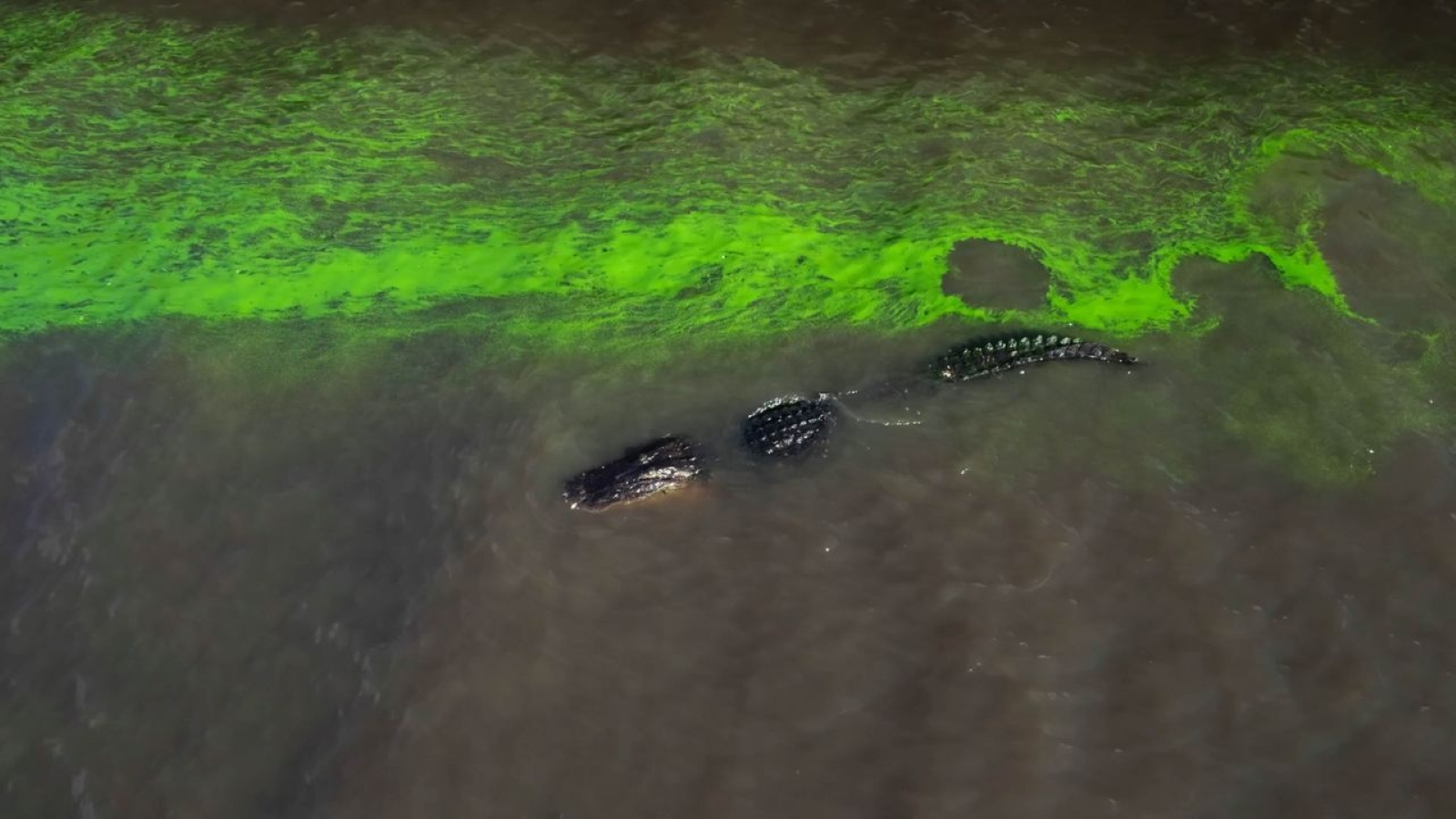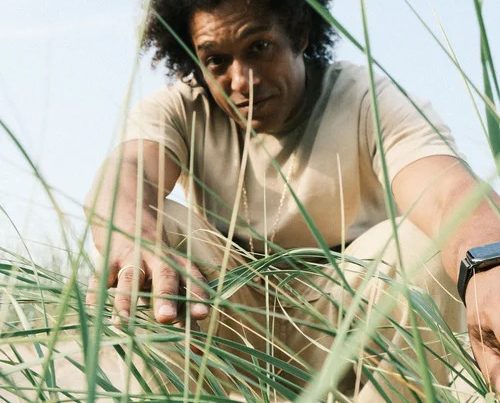The Subtropic Film Festival, a young, hyperlocal fest, returns for its second year in the Palm Beaches next weekend with two days of festivities at the Norton Museum of Art and Afflux Studios at G-Star Studios. On Nov. 7 and 8, the festival will maintain a full schedule of screenings, panels, workshops and awards centered on filmmaking in the Sunshine State.
While short films comprise most of the screenings, two feature-length documentaries with a national release will make their regional debuts at the Norton—and both confront issues facing the Everglades. I had a chance to review both “The Python Hunt” (screening at 7 p.m. Nov. 7) and “River of Grass” (screening at 2 p.m. Nov. 8) in advance.
The Python Hunt
In the dead of night, fueled by adrenaline and energy drinks and, for many of them, the insatiable desire to bash something’s head in, the python hunters hit the road. They look for the telltale signs of invasive Burmese pythons—the sound of slithering in the sawgrass, the snake’s distinctive butterscotch-yellow-and-burnt-orange pattern. If they’re lucky, they’ll manage to grab the doomed predator, barehanded, and shove it into a pillowcase or hefty garbage bag, where it will be loaded onto a truck, soon to be frozen to death or, in some gruesome cases, stabbed in the brain with an ice pick.
The intrepid nightcrawlers dedicated to this work are the subject of documentary filmmaker Xander Robin’s absorbing full-length debut, “The Python Hunt.” Robin framed his story around the 2023 Florida Python Challenge, the now-annual event in which snake hunters from around the country are invited to seven competition locations to bag as many pythons as they can in 10 days. The director homes in on a select few colorful characters: a man-bun-sporting science teacher from San Francisco; Toby Benoit, a wildlife columnist and self-described “eighth generation Florida cracker”; Benoit’s latest charge, an elderly Arizonan widower with a passion for gin-and-tonics and exploding the heads of pythons; Jimbo McCartney, a gladesman who ran afoul of the Python Challenges’ rules and regs, and who hosts his own rival hunt during the same period; and other sundry swamp people.

All of them give good copy, to borrow a bit of newspaper parlance. There’s a site-specific eccentricity worthy of Carl Hiaasen to the souls Robin follows, including the mulleted gentleman at the outset who spots a chameleon that soon winds up on the head of his companion, or the obviously amateur python hunter who wades into the Everglades wearing open-toed slip-ons and socks.
“The Python Hunt” effectively demystifies the work of these offbeat conservationists, revealing their 10-day odyssey for what it largely is: “hours and hours of abject boredom,” in Benoit’s verbiage, in which few pythons are identified, let alone captured. The 2023 Florida Python Challenge resulted in the removal of 209 pythons by more than 1,050 participants—a miniscule drop in the bucket of the tens of thousands of invasive snakes eating up to 90% of the Everglades’ native wildlife. When Jimbo McCartney dismisses the official Python Challenge as a hollow publicity stunt, it’s not difficult to agree with him.
Occasionally deviating from his documentation of the hunt, Robin allows some screen time for other issues affecting the Everglades ecosystem—including man-made urban sprawl and the use of species-killing pesticides—suggesting the pythons, with their menacing appearance and gluttonous temperament, are a convenient scapegoat for these more systemic disruptors.
River of Grass
This more complete picture of the Everglades’ destruction, and homo sapiens’ role in its decline, is the focus of “River of Grass,” director Sasha Wortzel’s essayistic tribute to the ecosystem. “Ten days after the storm, Marjory came to me in a dream,” the director offers toward the beginning of the film, in a plaintive voice-over. The storm, whose damage to the Glades’ natural and man-made structures Wortzel had just shown us, was presumably Ian but is unnamed, which might be the point—the major weather events that barrel through the region are so commonplace now that their identifiers blur. But the “Marjory” in her incantatory statement refers to Marjory Stoneman Douglas, the author, Everglades activist and all-around sparkplug who popularized the nickname “River of Grass” in an iconic book.
In Wortzel’s movie of the same name, vintage interviews with the nonagenarian Douglas (she died at 108, in 1998) share the running time with other archival footage of the Glades, alongside contemporary video of life in and around the ecosystem: from the tour guides and educators who make a living on its survival to the Miccosukee tribespeople who serve as stewards of the water. The python issue is addressed here as well, along with a perfect storm of other intruders: the militarization of the region following the Cuban Missile Crisis; the specter of commercial development; the levying of Lake Okeechobee, which prevented its vital downflow into the Everglades; and the toxic chemicals, released from nearby sugar cane burning, that wind up in the bodies of longtime Black and brown Gladespeople. The director boards a boat of commercial fisherman whose jobs are threatened by species decline, and spends time in an animal hospital and sanctuary that treats victims of red tide.
“River of Grass” is not all doom-and-gloom. Wortzel recognizes small victories for the environment when appropriate, such as the Stoneman Douglas-led stoppage of a jet port in the Everglades during the Nixon Administration. Furthermore, Wortzel’s own recollections of growing up in the Glades—detail-driven memories, such as peeling the flaky bark off of gumbo-limbo trees—anchor the film with a sense of beauty and lyricism that’s matched by the director’s keen visual eye, which renders the river of grass in images that border on abstract art.
And yet, judging by the staggering number of alligators populating its waters during footage of the dedication of Everglades National Park, in 1947, the comparative paucity of the present-day gator population is more than alarming. Movies like this cannot even keep up with the deluge of sorrowful Everglades news—Wortzel wrapped the project before the erection of a certain cruelly named migrant detention center that further infringes on the fragile ecosystem.
“River of Grass,” then, is both poetry and polemic. Paced like the meandering body of water that it hymns, it’s a singular film that borders on the elegiac—a love letter to a beleaguered national treasure.
For tickets and information about the Subtropic Film Festival, visit subtropic.org.
For more of Boca magazine’s arts and entertainment coverage, click here.







